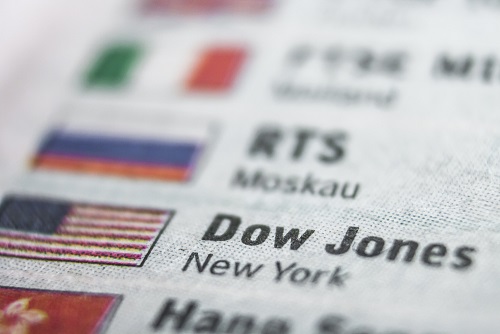Q3 Earnings Season Kicks Off! How Will the US Stock Market Perform?

Market Review
Last week (10/9-10/13), global stock markets mostly saw gains. In the U.S., the S&P 500 index rose by 0.45%, the Dow Jones Industrial Average increased by 0.79%, and the Nasdaq 100 index rose by 0.15%. In Europe, the STOXX 600 index recorded a gain of 0.96%. Among Asian stocks, the Nikkei 225 index had the highest increase of 4.26%.
【Source: MacroMicro;Date2023/10/9-2023/10/13】
【Source: MacroMicro;2023/1/1-2023/10/13】
1.US September CPI Beats Expectations, Probability of Interest Rate Hike Rises for the Year
The data released on October 12th shows that the US Consumer Price Index (CPI) in September increased by 3.7% year-on-year, surpassing the expected 3.6%. The September core CPI, which excludes food and energy, slowed to 4.1% from August's 4.3%, in line with market expectations.
【Source:MacroMicro】
The unexpected inflation can be attributed to three factors. First, a rebound in owner-equivalent rent (OER) contributed to the higher-than-expected increase in the CPI housing index. Second, rising oil prices drove up energy commodity prices on a monthly basis. Third, service inflation remains sticky, with a significant 4.2% rebound in hotel prices in September.
Analysts generally believe that the moderation in core CPI may alleviate some pressure on the Federal Reserve, but strong energy prices make it difficult for US inflation to come down, potentially requiring the Fed to maintain high interest rates for a longer period.
Following the release of the data, market expectations for a rate hike by the Federal Reserve later this year have increased. According to the latest data from CME, the probability of a rate hike in December stands at 33%.
【Source:CME 】
Mitrade Analyst:
Due to the sustained high yields of US Treasury bonds tightening the financial environment, Federal Reserve officials sent frequent dovish signals last week. We expect that the Fed will not raise interest rates in November. However, inflation remains stubborn, and considering the strong non-farm data and job vacancies previously observed, the possibility of a final interest rate hike cannot be ruled out.
Nevertheless, regardless of the outcome, once this rate hike is implemented, the Federal Reserve will no longer be able to raise rates, as it will have to take into account fiscal considerations. The market's focus will then gradually shift to the timing of interest rate cuts next year.
2.Q3 Earnings Season Begins: How Will the Stock Indices Perform?
On October 13th, JPMorgan Chase, Citigroup, and Wells Fargo officially kicked off the third-quarter earnings season for banks.
The earnings reports from these three banks exceeded market expectations. JPMorgan Chase initially rose by 5% and closed with a 1.6% increase, Wells Fargo closed with a more than 3% gain, while Citigroup initially rose over 4% but later reversed its gains.
According to FactSet data, as of October 13th, the S&P 500 index saw a year-on-year profit growth of 0.4% in the third quarter, marking the first year-on-year growth since the third quarter of 2022.
This seems to differ from the concerns raised by analysts earlier. Analysts generally expected a 0.3% year-on-year decline in overall profits for S&P 500 constituent companies in the third quarter, making it the fourth consecutive quarterly decline.
【Source:FactSet 】
However, the real highlight is yet to come. For the S&P 500 index, the most influential sector is the technology sector. In terms of market capitalization weight, the financial and consumer staples sectors account for 12.8% and 6.6% respectively, while the weight of the technology sector is as high as 27.4%.
In terms of performance, the S&P 500 index's earnings per share (EPS) declined by 4% year-on-year in the second quarter, further falling from -1.4% in the first quarter. In contrast, the NASDAQ index achieved a positive turnaround in EPS, rising from -8.4% in the first quarter to 14.7% in the second quarter. The recovery of the technology sector is crucial for the overall performance of the US stock market.
Mitrade Analyst:
The earnings of the S&P 500 index are gradually narrowing their decline after experiencing a recession in the last quarter of the previous year. With a backdrop of robust economic growth in the United States, there is a potential for corporate earnings to turn positive from negative.
Investors should pay attention to this week's financial reports from companies such as Tesla and Netflix. If the performance falls short of expectations, it could negatively impact market sentiment.
3. Escalating Israeli-Palestinian Conflict: What Impact Does It Have on the US Stock Market?
Last Friday, the escalation of the Israeli-Palestinian conflict heightened risk aversion. Crude oil surged over 5%, while US bonds rebounded, causing the ten-year Treasury yield to temporarily drop more than 10 basis points, ending a five-week consecutive increase. Among the three major US stock indices, only the Dow Jones closed higher, with the Nasdaq falling over 1%, reversing its weekly upward trend.
【Source:MacroMicro 】
Based on historical experience, most wars have limited impact on the US stock market. However, once a war causes oil price fluctuations, it quickly becomes relevant to the US stock market. Similar to the Middle East conflict in 1973, oil prices tripled within a few months, leading to rapid inflation and an ensuing economic recession. During that time, US stocks lost 40% of their market value within a year.
Of course, the impact of oil on the US real economy has diminished, and global dependence on oil continues to decline. Nevertheless, even if the effects of war have been minimized, the market remains sensitive to increases in oil prices. This sensitivity is not only due to investors' reflexive panic about rising oil prices but also the threat that such increases pose to accelerating economic decline.
Mitrade Analyst:
Once the escalation of the war situation leads to an increase in oil prices, the stock market is still expected to experience significant fluctuations. However, with the global economy in a downturn cycle, the inflationary pressure arising from the rise in oil prices is likely to weaken. Therefore, it is anticipated that the Federal Reserve will not make significant adjustments to address the oil price crisis. On the contrary, excessive tightening may pose greater risks.
For investors, in the face of market volatility, it is advised to remain patient with their positions or consider investing in energy stocks as a hedge.
* The content presented above, whether from a third party or not, is considered as general advice only. This article should not be construed as containing investment advice, investment recommendations, an offer of or solicitation for any transactions in financial instruments.

